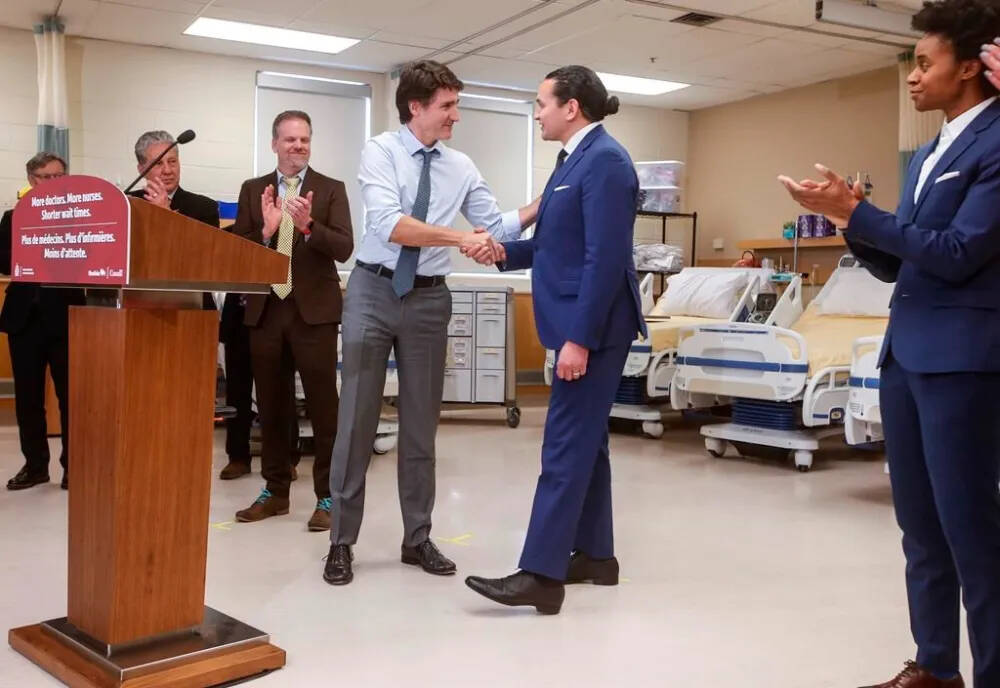Co-operation, not political brinkmanship
Advertisement
Read this article for free:
or
Already have an account? Log in here »
To continue reading, please subscribe:
Monthly Digital Subscription
$0 for the first 4 weeks*
- Enjoy unlimited reading on winnipegfreepress.com
- Read the E-Edition, our digital replica newspaper
- Access News Break, our award-winning app
- Play interactive puzzles
*No charge for 4 weeks then price increases to the regular rate of $19.00 plus GST every four weeks. Offer available to new and qualified returning subscribers only. Cancel any time.
Monthly Digital Subscription
$4.75/week*
- Enjoy unlimited reading on winnipegfreepress.com
- Read the E-Edition, our digital replica newspaper
- Access News Break, our award-winning app
- Play interactive puzzles
*Billed as $19 plus GST every four weeks. Cancel any time.
To continue reading, please subscribe:
Add Free Press access to your Brandon Sun subscription for only an additional
$1 for the first 4 weeks*
*Your next subscription payment will increase by $1.00 and you will be charged $16.99 plus GST for four weeks. After four weeks, your payment will increase to $23.99 plus GST every four weeks.
Read unlimited articles for free today:
or
Already have an account? Log in here »
Hey there, time traveller!
This article was published 21/02/2024 (663 days ago), so information in it may no longer be current.
Last week, the Manitoba government announced a health-care deal with Ottawa, and as a result, $633 million will flow into this province over the next five years to support a variety of improvements in health care.
At the same time, something will be flowing the other way as well: the Manitoba government will show the federal government where the money is being spent, and track metrics that will see if the spending is actually improving health-care results for Canadians.
It’s a refreshing change from the normal circumstances, where provincial governments bleat that they are being underfunded by the feds, and then happily take federal money, plow it into general revenue and spend it wherever they like on anything from business supports to tax breaks designed to garner votes.

The Canadian Press
Prime Minister Justin Trudeau and Manitoba Premier Wab Kinew
The federal government isn’t dictating where Premier Wab Kinew’s government is to spend the health-care money — health care is, after all, a provincial responsibility.
Instead, the federal government and the provincial government negotiated a plan that they believe particularly suits the health-care needs of this province. It’s something that six other provinces and territories have done as well.
It’s the result of a plan the federal government announced last February when it committed to spend an additional $46 billion on health care over the next 10 years.
The provincial premiers responded in the usual way — that the funding didn’t go far enough.
There was also, as always, discomfort with the idea that, by asking for fiscal accountability, the federal government was straying into an area that is the responsibility of the individual provinces. That response is as expected as night following day.
After all, there are provincial governments in Canada right now whose entire political platform is blaming Ottawa for every possible ill.
But there are very good reasons for the federal government to want that kind of fiscal accountability.
Just imagine your youngster comes to you and says they’ve had some extra expenses and haven’t got enough money left this month to pay their rent.
(We’ve made this point before in different ways in recent editorials.)
And, instead of paying the rent, you find out that your progeny took the money and spent it on beer and lottery tickets. After that, they give you a call, and say, “I can’t pay the rent, and I’m going to be evicted.”
How many times would you keep putting up “rent” money?
How many times should the federal government put up “health-care” money that isn’t going anywhere near health care?
The average Canadian doesn’t care whether health care is a federal responsibility or a provincial one. The average Canadian doesn’t care who gets the political credit either — no one cares in the least whose name is on the announcement or which minister stands in front of the television cameras.
The average Canadian cares about having a family doctor so that they can get reliable, consistent care when they are sick or injured. That there are hospital beds available when a family member is in dire need of one. That there are diagnostic scans and joint replacements and heart surgery without painful, stressful waiting lists.
We could do with far less political brinkmanship and much more co-operation.
Every single politician is elected to serve their constituents — not their party, not their premier, not their prime minister.
Serving their constituents means being accountable, clear and honest about what’s being done to improve a health-care system with obvious failings.
Any politician who uses that clear public need as a pawn in a political game is beneath contempt.
History
Updated on Wednesday, February 21, 2024 7:07 AM CST: Adds photo


